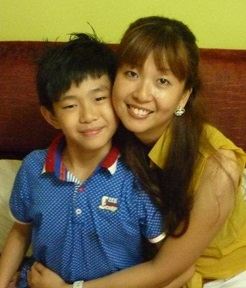Struggling Students: A Global Problem with a Universal Solution According to the College of Optometrists in Vision Development

Aurora, OH – For millions of parents, back to school means back to the search for answers to their children’s learning difficulties. While many parents are hopeful the new teacher will have a magic bullet, others are just as frustrated as when the previous school year ended. “There is a light at the end of the tunnel,” says Dr. David Damari, President of the College of Optometrists in Vision Development (COVD), “Statistically more than 60% of children who struggle with reading have underlying vision problems contributing to their challenges.”
But it’s not the type of vision problem most people think of. Most of the children who have vision problems that interfere with reading and learning can actually see the letters on the eye chart just fine. So when parents are told their children have passed a vision screening, what they are really being told is that their child can see clearly far away. But the problem lies in what was not tested – how well the two eyes work together when reading, how they move on the page or track a line of print, to name a few of the 17 visual skills required for academic success.
It doesn’t really matter what the curriculum is or even what country you are in, when children have underlying vision problems contributing to their learning challenges, they continue to struggle until the vision problem is corrected.
“My wife would say ‘you can see the steam come out of her ears’ when Serena struggled to read at home,” Michael Prolman shares about his 9-year-old daughter, “We could not understand why such a highly intelligent girl, with a vocabulary many years ahead of her age, had so much trouble reading. In the second grade, her frustration grew to the point where she no longer wanted to read.”
Fortunately, a psychologist referred them to a developmental optometrist who opened the door to a solution. Serena had convergence insufficiency, a very treatable eye coordination disorder that can make reading very difficult. Convergence insufficiency is treated with optometric vision therapy.
After vision therapy, “Serena now reads one year ahead of her grade level. Recently, Serena invited me to read alongside of her on the sofa. While she was reading her book, I occasionally looked surreptitiously over the top of mine, to observe her completely absorbed in a world of words. It was one of the most deeply satisfying moments I have experienced as a parent.”
Even in Malaysia parents are dealing with the same problems. Tim Lim had low self-esteem and even thought he was stupid. The Dyslexia Association Malaysia referred Tim Lim to a developmental optometrist in Kuala Lumpur who was able to get to the root of the problem. Tim Lim had convergence insufficiency. Once the vision problem was corrected his mother, Ang Si Ying, saw a huge difference, “Now Tim Lin is starting to use his brain and he is very intelligent! He no longer throws tantrums when asked to do schoolwork and homework gets done much faster.”
For Andreas Lizardos, from Greece, he had to wait until he was an adult to get help. When he was in school he had difficulty focusing and had trouble understanding the lesson. Even as an adult he would get nervous and confused when his worked required him to read for more than one hour either in print or on the computer. After optometric vision therapy, “I have noticed remarkable improvement. I can focus for extended periods of time without any problem. I strongly recommend this therapy to all that have similar problems, especially for children.”
“August is historically National Children’s Vision and Learning Month, but this year we decided to share stories from around the globe so people could see this is a global problem with a universal solution,” states Damari. As the new school year rounds the corner, August is the perfect time to make sure your child has all the visual skills required for academic success. For more information, or to find a doctor near you, visit covd.org.
About COVD
The College of Optometrists in Vision Development (COVD) is an international, non-profit optometric membership organization that provides education, evaluation, and board certification programs in behavioral and developmental vision care, vision therapy, and visual rehabilitation. The organization is comprised of doctors of optometry, vision therapists and other vision specialists. For more information on learning-related vision problems, vision therapy and COVD, please visit www.covd.org or call 888.268.3770.
A series of public service announcements (PSAs) are available at covd.org to help raise awareness that vision problems can not only interfere with learning, but sports performance, and other activities of daily living. These PSAs also address vision problems that impact individuals who have autism spectrum disorders or those who have suffered a head injury.
CONTACT: Pamela R. Happ, CAE
COVD Executive Director
888.268.3770 tel
Email: phapp@covd.org
Website: www.covd.org
Tags:

